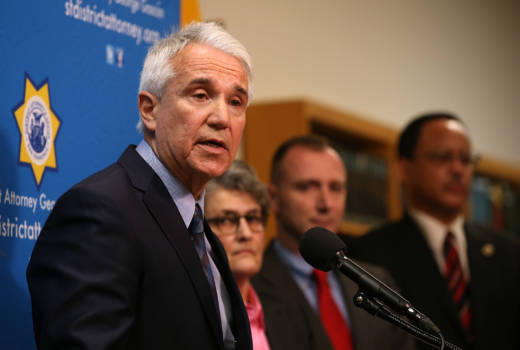San Francisco's district attorney announced Wednesday that city prosecutors will toss out or reduce thousands of criminal convictions for marijuana dating back decades, a move allowed under a 2016 ballot measure legalizing recreational use in California.
District Attorney George Gascón said his office will dismiss nearly 3,000 misdemeanor cases and review nearly 5,000 felony cases for possible action.
Proposition 64 legalized the recreational use of marijuana. It also allowed people convicted of marijuana charges to petition courts to toss out the cases or reduce penalties.
But Gascón says that process can be time-consuming and costly, so prosecutors in the district attorney's office plan to review and wipe out eligible cases en masse. Some people with convictions may not know they are eligible, Gascón said.

